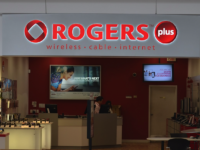Late last night, Industry Minister Mélanie Joly announced that the government was leaving in place a CRTC decision that granted wholesale access to fibre networks. By sheer coincidence, today the Globe and Mail runs my opinion piece on the issue, in which I argued that maximizing competition regardless of provider should be the guiding principle for the government. I start by noting that the Canadian struggle to foster greater competition in telecom and Internet services dates back decades. As early in the 1970s, the Canadian Radio-television and Telecommunication Commission (CRTC) mandated that dominant companies such as Bell provide access to their key network infrastructure to open the door to new marketplace entrants. In recent years, the debates have shifted to granting wholesale access to wireless and Internet networks to inject competition into those services.
Post Tagged with: "competition"
The Law Bytes Podcast, Episode 144: Keldon Bester on the Rogers-Shaw Merger and the Problem with Canadian Competition Law
The proposed Rogers-Shaw merger was back in the news last week as Canadian Industry minister Francois Philippe Champagne held a mid-week press conference to announce that the original deal was dead, but that a reworked deal that brings in Videotron might be a possibility if certain government expectations on restrictions on transferring spectrum licences and consumer pricing outside of Quebec were met. Keldon Bester is a co-founder of the Canadian Anti-Monopoly Project (CAMP), a fellow at the Centre for International Governance Innovation and an independent consultant and researcher working on issues of competition and monopoly power in Canada. He’s been one of the most insightful and outspoken experts on the proposed Rogers-Shaw merger and he joins the Law Bytes podcast to discuss where things stand and the big picture weaknesses of Canadian competition law and policy.
Responding to the Rogers Outage: Time to Get Serious About Competition, Consumer Rights, and Communications Regulation
Like many Canadians, I spent most of the massive Rogers outage completely offline. With the benefit of hindsight, my family made a big mistake by relying on a single provider for everything: broadband, home phone, cable, and wireless services on a family plan. When everything went down, everything really went down. No dial tone, no channels, no connectivity. Work was challenging and contact with the kids shut off. It was disorienting and a reminder of our reliance on communications networks for virtually every aspect of our daily lives.
So what comes next? We cannot let this become nothing more than a “what did you do” memory alongside some nominal credit from Rogers for the inconvenience. Canada obviously has a competition problem when it comes to communications services resulting in some of the highest wireless and broadband pricing in the developed world. Purchasing more of those services as a backup – whether an extra broadband or cellphone connection – will be unaffordable to most and only exacerbate the problem. Even distributing the services among providers likely means that consumers take a financial hit as they walk away from the benefits from a market that has incentivized bundling discounts. Consumers always pay the price in these circumstances, but there are policy solutions that could reduce the risk of catastrophic outages and our reliance on a single provider for so many essential services.
Why the Government’s New Telecom Policy Directive Means More of the Same for Canada’s Communications Competition Woes
Innovation, Science and Industry François-Philippe Champagne unveiled the government’s proposed new telecom policy directive yesterday, hailing it as a “historic step.” However, a closer look at the policy suggests that the only thing that is history are any immediate hopes for a more competitive communications marketplace in Canada. Once again, the government has shown itself unwilling to take a strong stand in favour of consumers and competition, instead releasing a directive that largely retains the status quo and sends the message to CRTC Chair Ian Scott to stay the course. Indeed, the primary purpose behind the announcement would appear to be an attempt to shield the government from criticism over its decision to leave the controversial CRTC decision on wholesale Internet access intact, thereby denying consumers the prospect of lower costs for Internet services.
The Law Bytes Podcast, Episode 120: Vass Bednar, Ana Qarri and Robin Shaban on Fixing Canada’s Competition Law Problem
The proposed Rogers – Shaw merger has placed Canada’s competition law and policy back into the spotlight as consumers frustrated by high wireless prices and a market that many believe already suffers from insufficient competition face the prospect of even less competition should the deal be approved. Last week, the House of Commons Standing Committee on Industry and Technology agreed, issuing a recommendation that “the Committee believes the merger should not proceed” and identifying the need for conditions in the event that it does.
Vass Bednar, Ana Quarri, and Robin Shaban recently conducted an extensive study for the Ministry of Innovation, Science and Industry on competition in data driven markets in Canada. Vass, the Executive Director of McMaster University’s Master of Public Policy (MPP) in Digital Society Program, Ana, a recent graduate of McGill University Faculty of Law, and Robin, co-founder and senior economist at Vivic Research, join me on this week’s Law Bytes podcast to discuss their study, the intersection between competition and digital and telecom policy, and their proposed reforms to reshape Canadian competition law.











